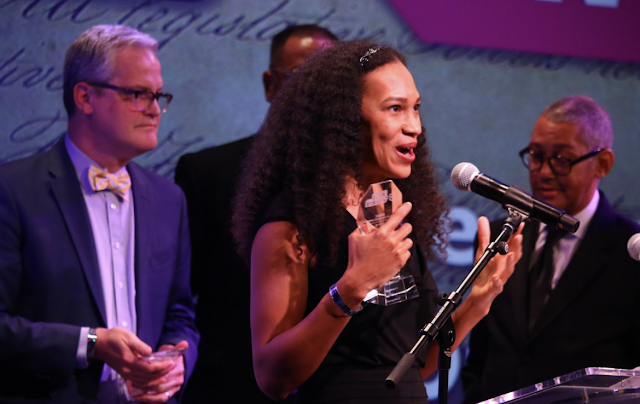Jussie Smollett's Drama
 |
| Jussie Smollett |
"Before I get started on why we're here, as I look out into the crowd, I just wish that the families of gun violence in this city got this much attention, because that's who really deserves the amount of attention that we're giving to this particular incident. I'm left hanging my head and asking why. Why would anyone, especially an African-American man, use the symbolism of a noose to make false accusations? How could someone look at the hatred and suffering associated with that symbol, and see an opportunity to manipulate that symbol to further his own public profile?"
Actor Jussie Smollett had claimed that he was attacked by
two men yelling racist and homophobic slurs, who poured alcohol on him and put
a noose around his neck. He claimed the attackers yelled "This is MAGA
country!" so we were led to believe that the current political climate led
to a quasi-pseudo-lynching on the Chicago streets.
My own father had known of a man who was about to be
lynched. This was in rural Georgia in the 1930s. He told the story of how the
man - in what he believed to be his final moments of life - made a sign
associated with some mysterious fraternal organization. Seeing this sign, one of his
white attackers was moved to say, "Take your hands off of him! Don't hurt him
anymore. He's my brother!"
My father's purpose behind telling this story was to show
that all of the white participants in lynch mobs weren't necessarily racist. I
don't know... that's a bit of a stretch for me. I think that his need to talk
himself out of his appropriate anger and indignation at American lynchings of
black men may have been his ulterior motive. He never developed the instinct to
fight for himself or his family, the way white men seem to feel fully entitled
to fight and make demands. Even if there was a legitimate need to fight to
defend his wife's honor, he would sit back and quietly wait for someone else to
do the fighting.
There was another reason why my father was so emasculated.
He told me about an incident when his mother paid one of her brothers to come
to the house and give her older son a beating as punishment for some infraction
- he didn't remember what. My uncle died of cancer long before I was old enough
to ask him about it. My father did say that he felt his mother had regretted it
afterwards. I can only imagine the devastating effects that this beating had on
my uncle, and on my young father as a witness to such violence.
I knew as a young child that I could not look to my father
for protection. When the other children said, "I'm gonna tell my daddy!
He's gonna beat you up," I, on the other hand, thought that threatening to
tell my mother would be the ultimate threat. I was certainly scared to death of
her, so I assumed that everyone else should be, as well.
We all have our suspicions where the Chicago Police
Department is concerned. IF it turned out that Jussie Smollett faked this
quasi-pseudo-lynching for attention, it would be very sad indeed. If we could
see this as an opportunity to explore the psychological effects of lynching on
African-American men, and the historical effects of whippings, mutilations and
family-separations on our enslaved ancestors, then maybe it will have served
some purpose.



Comments
Post a Comment